APIOC 2016
Conference
12 & 13 Dec 2016
Melbourne
The first Asia-Pacific Industrial Organisation Conference (APIOC) was hosted by the University of Melbourne’s Centre for Market Design and the Department of Economics at Monash University and the Department of Economics at the University of Melbourne.
Message from the Chair
Luís Cabral
NYU Stern
Welcome to Melbourne and to the inaugural conference of the Asia-Pacific Industrial Organization Society. For the past 30 or 40 years, IO has taken enormous strides, and as a result justly acquired a prominent status among the different fields of economics.
Numerous researchers have been awarded the Nobel and other leading prizes for IO-related contributions. The IO approach to economics has greatly influenced other fields, from trade to law and economics, from corporate finance to strategy, to mention just a few. If economics is the queen of social science, then IO is one of the leading princes of economics.
Reflecting the field’s importance and reach, two large annual IO conferences have been organized for years: the IIOC Conference in the US and the EARIE conference in Europe. But there is more to economics research than Europe and North America. In particular, the recent years have witness considerable growth in high-impact IO research in Asia and Australasia. In this context, APIOS emerges from the wonderful initiative of a group of Australasia-based IO researchers. Their primary goal: to organize an annual IO conference taking place in a region hitherto undeserved conference-wise.
APIOS fills a deep void and its creation is most welcome. It was for me a great honour to be appointed the inaugural conference’s scientific committee chair. I was pleasantly surprised by the number and quality of submissions; and I know this feeling was shared by my organizing committee fellow members. We have a great program indeed.
I thank you all for coming and I hope this is just the beginning of a long series of high-level, productive and fun conferences. I am very sorry that, for a variety of reasons, I cannot attend this year’s conference, especially considering it is the inaugural one. I hope to be able to attend future editions. Until then, I wish you all the best in Melbourne and beyond.
Luís Cabral

Keynote speakers
Patrick Rey
Toulouse School of Economics
Patrick Rey‘s keynote speech on Monday 12 December was on Prizes versus Contracts as Incentives for Innovation.
Patrick the Director of the Institut d’Economie Industrielle, a member of the Toulouse School of Economics and a Professor of Economics at the University of Toulouse. He was previously Director of the Laboratory of Industrial Organisation, CREST-INSEE, and of l’Ecole Nationale de la Statistique. He has a PhD in Economics from the University of Toulouse, a Diploma in Engineering from Ecole Polytechnique, and a Masters from ENSAE . His research interests include Industrial Organisation, Regulation and Competition Policy, and Innovation and Intellectual Property.

Matthew Shum
Caltech
Matthew Shum’s keynote speech on Tuesday 13 December is entitled The Welfare Effects of Endogenous Quality Choice in Cable Television Markets.
Access the paper on which Matthew’s speech will be based
Matthew’s research lies at the intersection of industrial organisation, econometrics, and applied microeconomics. He is trying to understand how rational consumer behaviour actually is in the field, whether equilibrium models of rational decision making are appropriate for firms, and how optimal real-life firms behave. He was at Johns Hopkins University from 2000 to 2008, and at the University of Toronto from 1998 to 2000.

Invited speakers
John Asker
UCLA
John Asker is a Professor of Economics at UCLA. His research covers topics related to antitrust policy, cartel behaviour, vertical restraints, the competitive impact of mergers, auction design, firm-level productivity and the effects of industry subsidies. He is also Co-editor of American Economic Journal: Microeconomics and a Research Associate at the National Bureau of Economic Research.

Yeon-Koo Che
Columbia University of Economics
Yeon-Koo Che received his PhD in Economics from Stanford University in 1991. He is the Kelvin J. Lancaster Professor of Economic Theory at Columbia University, and is Fellow of Econometric Society. His research focuses on auction theory, mechanism design, and market design, contract theory and law and economics. He was editor of Journal of Industrial Economics, and is currently serving as associate editor of Econometrica and advisory editor of Games and Economic Behavior.

Daniel Garrett
Toulouse School of Economics
Daniel Garrett is an assistant professor at the TSE Research Faculty, having received his PhD from the Economics Department at Northwestern University in 2012. His research interests include economic theory, and the theory of industrial organization and of regulation. His research has appeared in publications including the American Economic Review, the Journal of Economic Theory, the Journal of the European Economic Association, and the Journal of Political Economy.

Jacob Goeree
UNSW Australia
Jacob Goeree is a world-leading experimenter, theorist and market designer. His research has influenced the design of major spectrum auctions worldwide. In the US, he designed and tested the recent 700MHz auction that generated record revenues of 19 billion dollars and co-designed the market for pollution permits for the regional greenhouse gas initiative. He served as President of the Economic Science Association and as Editor of Experimental Economics and is Associate Editor of the Journal of Economic Theory and Games and Economic Behavior.

Bruno Jullien
Toulouse School of Economics
Bruno Jullien is a senior researcher, CNRS, at the TSE Research Faculty. His research interests include Industrial Organisation, Competition Policy, Contract theory, Regulation, Telecommunication, Internet, Network Economics, Economics of Information, Economics of Insurance, and Economics of Health.

Stephen Martin
Purdue University
Stephen Martin is Professor of Economics at the Krannert School of Management, Purdue University. Previous roles have included Faculty Director of the Technology Transfer Initiative at the Burton D. Morgan Center for Entrepreneurship, Chairman of the Economics Policy Committee, and Professor of Industrial Organization at the University of Amsterdam. He completed his PhD in economics at M.I.T. His research interests include all areas of industrial economics with current emphasis on comparative (U.S. and EU) competition policy and the impact of state aid on market performance.

Leslie Marx
Duke Trinity College of Arts and Sciences
Leslie M. Marx, PhD, Robert A. Bandeen Professor of Economics; BS (Duke University), MA (Northwestern University), PhD (Northwestern University) Leslie’s research interests are in game theory and industrial organisation. Her research focuses on anti-competitive behaviour by individuals and firms, including collusion, bid rigging, and anti-competitive contract provisions. Her research has appeared in publications including; American Economic Review, Review of Economic Studies, Journal of Political Economy, and Quarterly Journal of Economics.

Michelle Sovinsky
University of Mannheim
Michelle Sovinsky’s research focuses on using game-theoretic modelling with empirical analysis to examine policy issues in industrial organisation and applied health. Her research covers topics including individual-decision making under limited information and the implications for firms’ decisions and market power; and the antitrust implications of research collaboration or advertising expenditures, the analysis of decisions concerning long-term care for the elderly; how individuals make risky decisions concerning their health, drug use, or eating behaviours.
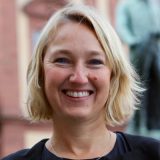
Organising Committee
Luís Cabral
APIOS Chair - NYU Stern
A native of Portugal, Luís Cabral is a graduate of Stanford University (PhD, Economics, 1989). He taught at the London Business School, Berkeley, Yale, NYU and IESE. He is currently the Paganelli-Bull Professor of Economics and International Business at NYU’s Stern School of Business as well as Chair of the Economics Department. Luís’ research topics include reputation, learning, network effects, sunk costs, innovation, strategic risk choice. In addition to numerous journal articles, he is the author of Introduction to Industrial Organization, a textbook translated and adopted by universities worldwide.

David Byrne
University of Melbourne
David Byrne is Associate Director of Research at The Centre for Market Design, and a senior economics lecturer at the University of Melbourne. He is an applied econometrician with a focus on industrial economics, with research interests in the areas of cable TV, petrol, pharmaceuticals, and electricity. David completed his PhD at Queen’s University in 2007. He works at the intersection of industrial organisation and econometrics. He develops theory-based structural econometric models to empirically evaluate the design, performance, and structure of markets.

Catherine de Fontenay
Melbourne Business School
Catherine de Fontenay is an academic economist who has researched and taught across Australia. Prior to joining MBS, Catherine held positions at the University of New South Wales and the Research School of Pacific and Asian Studies at ANU. She has extensive teaching and program directing expertise, and her research interests include development economics, industrial organisation, and organisational economics.

Simona Fabrizi
University of Auckland
Simona joined the Economics Department at the University of Auckland in August 2016. Prior to this she was a Senior Lecturer in Economics at Massey University (2007-2016). She received her PhD in Economics in 2003 from the Toulouse School of Economics and the University of Bologna. Simona is a co-founder of the Research Network for Applied and Theoretical Economics (ATE) and a member of the Centre for Mathematical Social Science (CMSS).
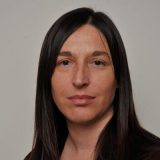
Jun Xiao
University of Melbourne
Jun Xiao is an economics lecturer at the University of Melbourne. Jun received his PhD from the Pennsylvania State University in 2011 before joining the University of Melbourne in 2012. His research interests relate to industrial organisation and game theory. A particular research focus is on models of bargaining and contests, and their applications.

Steffen Lippert
University of Auckland
Steffen joined the Economics Department at the University of Auckland in July 2014. Prior to this he taught Economics at the University of Otago, at Massey University, and was a Postdoctoral Fellow at the Research Institute of Industrial Economics in Stockholm. He received his PhD in Economics in 2005 from the Toulouse School of Economics and Mannheim University. His research focuses on Industrial Economics, the Economics of Innovation, and the Economics of Social Interaction and Networks. He is a co-founder of the Research Network for Applied and Theoretical Economics (ATE).
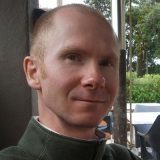
Nisvan Erkal
University of Melbourne
Nisvan Erkal is a Professor of Economics at the University of Melbourne. She received her PhD from the University of Maryland, College Park. In 2007 and 2011, she was a Visiting Scholar at the University of California, Berkeley. Nisvan’s research interests are in the areas of industrial organisation (innovation and competition policy) and experimental economics (belief updating, corruption, cultural integration, and charitable giving). She is on the Executive Committee of Intertic, an international Think Tank on Innovation and Competition, and a member of the Asia-Pacific Innovation Network.

Simon Loertscher
University of Melbourne
Simon Loertscher is the Director of the Centre for Market Design and a Professor of Economics at the University of Melbourne. Simon received his PhD from the University of Bern. Prior to joining the University of Melbourne, he was an Adjunct Assistant Professor at Columbia University in New York City. His research interests relate to industrial organisation. A particular research focus is on models of market micro-structure and market making in environments with two-sided private information.
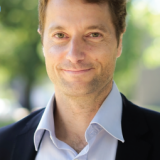
Zhijun Chen
Monash University
Zhijun Chen is a senior lecturer at Monash University. He received his PhD in Economics from Toulouse School of Economics. His research focuses on Industrial Organisation, Competition Policy, and Applied Microeconomics, and his research papers are published in leading economics journals, including the American Economic Review, the Rand Journal of Economics, the Journal of Law and Economics, and the European Economic Review.
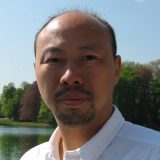
Matt Shum
Caltech
Matthew Shum’s research lies at the intersection of industrial organisation, econometrics, and applied microeconomics. He is trying to understand how rational consumer behaviour actually is in the field, whether equilibrium models of rational decision making are appropriate for firms, and how optimal real-life firms behave. Matt was previously on the faculty at Johns Hopkins University from 2000 to 2008. Before that, he was on the faculty at the University of Toronto from 1998 to 2000.

Michelle Sovinsky
University of Mannheim
Michelle Sovinsky’s research focuses on using game-theoretic modelling with empirical analysis to examine policy issues in industrial organisation and applied health. Her research covers a wide range of topics including individual-decision making under limited information and the implications for firms’ decisions and market power; and the antitrust implications of research collaboration or advertising expenditures, the analysis of decisions concerning long-term care for the elderly; how individuals make risky decisions concerning their health, drug use, or eating behaviours.

Marcus Asplund
Copenhagen Business School
Marcus Asplund received his PhD in Economics from the Stockholm School of Economics in 1996. He has been a Professor of Economics at the Copenhagen Business School since 2012. Follow the link to find out more about Marcus.

John Asker
UCLA
John Asker is a Professor of Economics at UCLA. His research covers topics related to antitrust policy, cartel behaviour, vertical restraints, the competitive impact of mergers, auction design, firm-level productivity and the effects of industry subsidies. He is also Co-editor of American Economic Journal: Microeconomics and a Research Associate at the National Bureau of Economic Research.

Important dates:
Sunday 11 Dec 2016: welcome reception in the evening
Monday 12 Dec: plenary talks, parallel sessions, conference dinner
Tuesday 13 Dec 2016: plenary talks, parallel sessions, conference close
Access the full program
